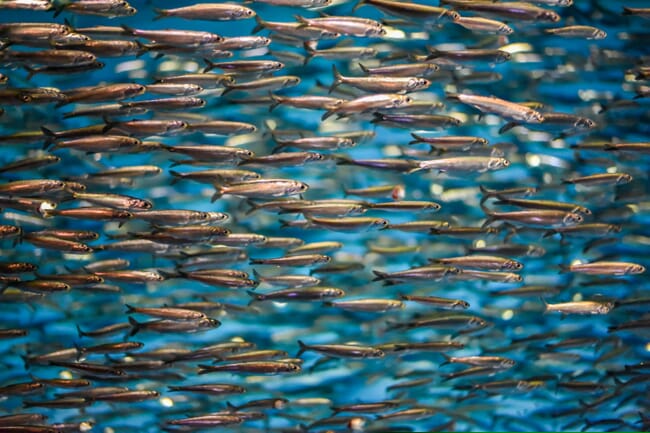
The toolkit, a one-stop resource for companies to tackle the climate change, habitat and biodiversity risks associated with aquaculture feed, combining over 80 tools, standards, initiatives and platforms from multiple organisations, along with guidance and case studies on practical steps to improve feed sustainability.
It's designed to connect seafood companies with tools and resources to make commitments, assess the risks associated with their feed ingredients and implement improvements. Major suppliers and retailers, including Sainsbury’s, Tesco, Thai Union, and Walmart, have already set goals and targets to improve the sustainability of the feed used to produce their products or the ingredients it contains.
“We want all seafood companies to include aquaculture feed in their sustainability commitments and policies because feed poses significant environmental and climate challenges,” says Paul Bulcock, aquaculture information manager at SFP. “Addressing this issue, along with continued improvements in farm planning and management, will enhance aquaculture’s role as a low-carbon, environmentally sustainable, and socially responsible food source.”
As SFP observes, aquaculture now accounts for more than half of the world’s seafood, by volume, and is critical to meeting increasing global demand for seafood while offering a low-carbon alternative to other animal products. However, aquaculture feed remains a significant climate change and environmental hotspot, with risks such as land conversion, deforestation, overexploitation, pollution, and bycatch from the production or capture of feed ingredients. It is estimated that aquaculture’s use of compound feed ingredients is responsible for up to 70-80 percent of its carbon impact and up to 90 percent of certain environmental impacts such as land and water use.
While multiple tools, standards, and improvement initiatives have already been developed to assist the seafood supply chain in meeting the challenge of feed sustainability, SFP says that theirs represents the first time these resources have been curated in one place.
The toolkit was produced with funding support from the Walmart Foundation for the project titled, “Addressing the Carbon and Biodiversity Impacts of Aquaculture by Motivating Responsible Aquaculture Practices at Scale.” The findings and recommendations are those of SFP alone and do not necessarily reflect the opinions of the Walmart Foundation.


